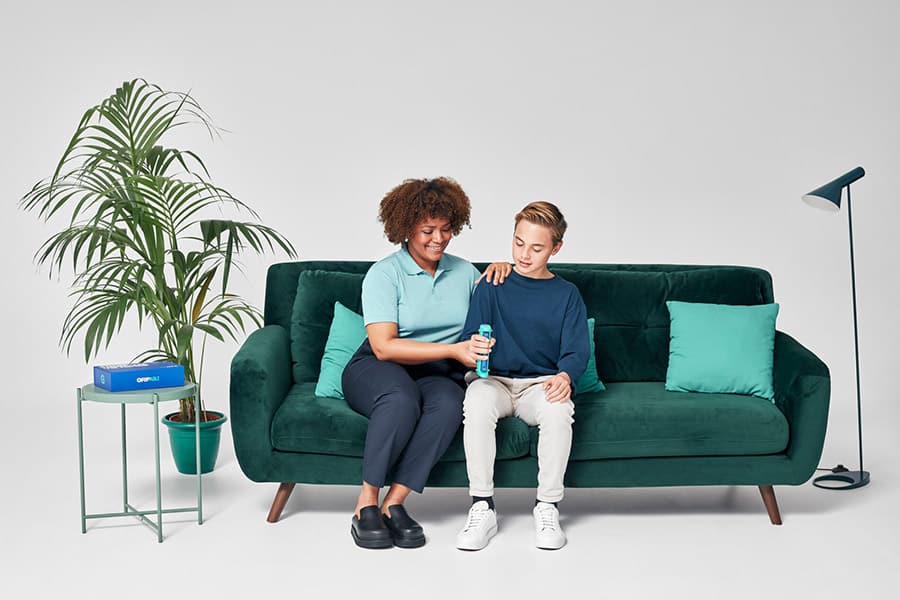‘Revolutionary’ project awarded grant to develop soft sensors for paediatric upper limb therapy

The Biomedical Catalyst (BMC) has awarded a grant worth over £800,000 to a pioneering project that will bring interactive rehabilitation technology for children with cerebral palsy (CP) to the clinic.
GripAble, a mobile assessment and training platform for home-based rehabilitation, and Dr Firat Güder from the Department of Bioengineering at Imperial College London, have been awarded the funding to bring SqueezAble to the clinic.
SqueezAble combines novel soft-sensing technology and interactive gamification to revolutionise upper-limb therapy for paediatric CP patients. The project team will work with children with CP to develop SqueezAble.
Additionally, GripAble will partner with Imperial’s Guder Research Group, which developed the underlying patent-pending soft-sensor technology. Together with an award-winning team of occupational therapists (OTs), clinical specialists, and medical device engineers, the project is aiming to advance the current prototypes toward clinical translation.
Dr Mike Mace, the chief technology officer and co-founder of GripAble, said: “Children living with an arm disability must learn to independently complete bimanual activities of daily living, requiring them to use both hands simultaneously, to be able to complete everyday tasks like eating, writing, and washing.
“To support them with this, we have a vision of a next-gen sensor which seamlessly integrates with and complements current occupational therapy by incorporating novel soft-sensing technology that will enable training of bimanual hand function by digitising existing soft therapy tools such as stress balls and Theraputty, in combination with gamification and virtual tasks.
“The project will incorporate user-centred design processes to develop and test SqueezAble with our target user group. As well as developing the new SqueezAble technology, over the next two years, we plan to create new bimanual games for training functional movement on GripAble’s software platform extending our current unimanual games.”
Without regular occupational therapy for upper limb and hand strength, dexterity and movement range, GripAble underlines, a child’s arm disability is likely to deteriorate and impact their ability to live in functional independence in adulthood. Many arm disabilities are linked to neurological disorders, like CP, which affects coordination, precision, and timing of movements.
Dr Güder added: “This project will allow us to build a medical device and an entirely new concept to address a large gap in current practice, especially valuable for the rehabilitation of paediatric patients. My team and I are extremely excited to work with GripAble and other partners on this project, which will be a great learning opportunity for all those involved.”
The grant was awarded as part of the BMC Feasibility and Primer Awards 2021 competition run by Innovate UK to support UK-registered businesses to develop innovative healthcare products, technologies, and processes.
The new grant follows GripAble’s previous work in commercialising its first portable therapeutic hand-grip devices, the GripAble Pro and the GripAble Home, for people with a range of musculoskeletal and neurological conditions.
GripAble’s digital platform – which includes bespoke hand-held sensors, mobile hardware, software, in-built gamification, and data services – enables home-based rehabilitation, allowing more patients to access “gold standard care” from therapists for longer periods, driving improved outcomes while decreasing the burden on healthcare systems.
A past clinical trial showed that the use of a GripAble rehabilitation device increased the number arm exercises stroke patients did at home without professional supervision, which could help significantly improve patient outcomes and ease pressure off the NHS.

